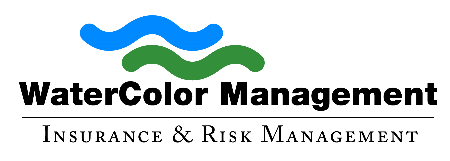
As fall gives way to winter, water and wastewater systems begin to feel the strain of colder temperatures, shifting demand patterns, and weather-related disruptions. Those same pressures carry over to the chemical distributors that support treatment facilities year-round.
How do seasonal shifts impact insurance needs for water treatment chemical distributors? The answer revolves around how weather, consumption patterns, and system stressors influence exposures. For agents, recognizing these patterns helps anticipate coverage gaps before clients experience losses. A specialized water treatment program gives agents a framework for aligning coverage with those seasonal realities.
Understanding Seasonal Demand and Weather Shifts
Seasonal fluctuations in water usage and treatment activities can create predictable variations in risk. During warmer months, facilities may see higher water throughput and dosing needs, which can translate into increased delivery frequency and expanded inventories for distributors. More inventory and distribution activity can heighten transportation and storage exposures.
In winter, treatment operations may slow or shift, but distributors still face weather-driven challenges. Issues such as freezing equipment, delayed deliveries, road closures, and limited site access can complicate distribution.
The National Fire Protection Association also reports that industrial and chemical facilities face increased risks during cold weather, including ice formation, blocked piping, and equipment ruptures when temperatures drop. These same vulnerabilities can affect distributors storing chemicals used in water treatment.
These seasonal changes influence underwriting by increasing the likelihood of transportation losses, storage failures, or accidental releases. Understanding these dynamics allows agents to guide clients toward coverage that accounts for seasonal shifts.
Key Risks for Chemical Distributors
Seasonal swings bring different exposures into focus, especially during extreme cold. When distributors handle treatment chemicals in winter, they must consider risks such as freezing, crystallization, or pressure buildup in containers or connected equipment. The U.S. Chemical Safety and Hazard Investigation Board also reports an increase in incidents during cold months, reinforcing the need for strong freeze protection and winterization planning.
Distributors also face year-round exposures that shift in intensity with the seasons. These include pollution incidents, transportation hazards during storms or low visibility, and temperature-sensitive storage concerns, such as product degradation or condensation.
Because these exposures change with the weather and operational demands, distributors benefit from proactive adjustments to their insurance program. A well-designed water treatment program accounts for these fluctuations, ensuring that risk-control measures, inventory decisions, and logistics remain aligned with changing conditions.
How Water Treatment Insurance Helps
Specialized water treatment insurance provides targeted protection for the unique exposures chemical distributors face throughout the year. Key coverages include pollution liability with in-transit protection for spills or releases, professional liability for dosing or specification errors, and completed operations coverage for issues that arise after work is finished or product is delivered.
WaterColor Management also provides added support through no-cost loss control consultations, contract reviews, and safety guidance. These resources help clients address seasonal and operational risks before they develop into costly claims, supporting agents who need a flexible underwriting partner capable of adapting coverage to changing conditions.
Protecting Clients Through Every Season
Regular, season-specific coverage reviews allow agents to stay ahead of fluctuating exposures. A targeted discussion helps clients address gaps they may not see on their own. Consider these questions in your next seasonal check-in:
- Have pollution coverage limits been evaluated ahead of upcoming operational demands?
- Are transportation and storage exposures aligned with expected weather-related risks?
- Does the client’s water treatment insurance include completed operations and in-transit protection that reflects their delivery and storage practices?
By revisiting coverage and risk-management strategies before each season, agents help clients remain compliant, prepared, and protected.
Partner with WaterColor Management to design a flexible water treatment insurance program that protects chemical distributors year-round. Get in touch with our underwriting team for tailored solutions and expert risk-management support.
About WaterColor Management
WaterColor Management has insured the water industry for over 30 years. Our policies include unlimited defense cost coverage in the event of a lawsuit against you. Call us at (855) 929-0824 or email info@watercolormanagement.com for a quick quote for your Water Business Professional, Products/Completed operations, Pollution, and General Liability Insurance.




